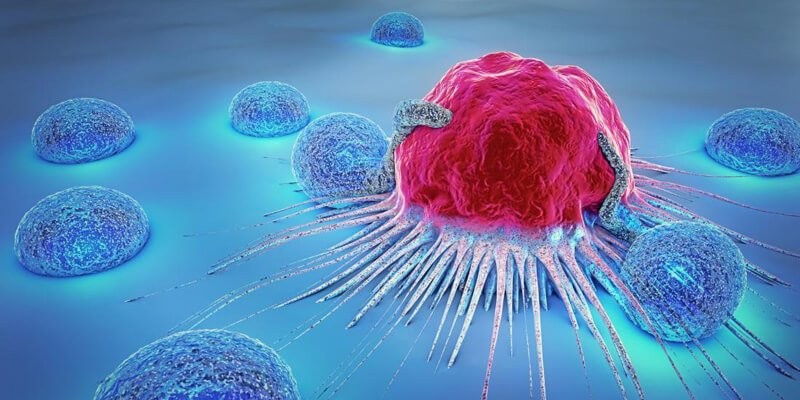
California - Saba:
The rapid shifts in the incidence of colorectal cancer, particularly among younger age groups, are prompting medical and scientific communities to delve deeper into the roots of this phenomenon.
With the rising rates of diagnosis among those under 50, questions are growing about the underlying causes of this remarkable change and the environmental or biological factors that may contribute to the early onset of the disease.
A team of researchers from the University of California, San Diego, sparked a scientific uproar after revealing a possible link between E. coli bacteria, often acquired during childhood, and an increased incidence of colorectal cancer among people under 50, an age group previously not considered vulnerable to this disease.
The research team analyzed the DNA of 981 colon cancer tumors from patients under 40 or over 70 years old. They found that young patients carried unique genetic mutations associated with colibactin, a toxin produced by some strains of E. coli bacteria, known to be transmitted through food.
These mutations appeared to appear very early in life, perhaps even before the age of 10, suggesting that the onset of cancer may date back to childhood, when the body is still growing and developing.
"The mutation patterns we discovered form a genetic record showing that early exposure to colibactin may be a primary driver of early-onset colon cancer," said Dr. Ludmil Alexandrov, lead author of the study.
The results also showed that these mutations were 3.3 times more common among young patients than among older patients, especially in countries with high rates of the disease, such as the United States and the United Kingdom. Undercooked meat, especially ground beef, is the main source of E. coli bacteria.
However, leafy greens such as spinach and romaine lettuce, as well as raw milk, unpasteurized dairy products, and raw fruits such as apples and cucumbers, are all common sources of infection, especially when contaminated with unsafe water or as a result of poor hygiene during preparation.
Most strains of E. coli are harmless, but some strains—including STEC, ETEC, and EPEC—can produce potent toxins that cause severe disease. The most prominent of these is colibactin, which is linked to this study.
This new study is the first to demonstrate that genetic mutations associated with colibactin are more common in younger patients, strengthening the hypothesis of a link between bacterial infections and early-onset cancer.
"We didn't originally plan to focus on younger patients, but the data showed that colibactin-related mutations are much more common in this group," said study co-author Dr. Marcos Diaz-Gay.
The rapid shifts in the incidence of colorectal cancer, particularly among younger age groups, are prompting medical and scientific communities to delve deeper into the roots of this phenomenon.
With the rising rates of diagnosis among those under 50, questions are growing about the underlying causes of this remarkable change and the environmental or biological factors that may contribute to the early onset of the disease.
A team of researchers from the University of California, San Diego, sparked a scientific uproar after revealing a possible link between E. coli bacteria, often acquired during childhood, and an increased incidence of colorectal cancer among people under 50, an age group previously not considered vulnerable to this disease.
The research team analyzed the DNA of 981 colon cancer tumors from patients under 40 or over 70 years old. They found that young patients carried unique genetic mutations associated with colibactin, a toxin produced by some strains of E. coli bacteria, known to be transmitted through food.
These mutations appeared to appear very early in life, perhaps even before the age of 10, suggesting that the onset of cancer may date back to childhood, when the body is still growing and developing.
"The mutation patterns we discovered form a genetic record showing that early exposure to colibactin may be a primary driver of early-onset colon cancer," said Dr. Ludmil Alexandrov, lead author of the study.
The results also showed that these mutations were 3.3 times more common among young patients than among older patients, especially in countries with high rates of the disease, such as the United States and the United Kingdom. Undercooked meat, especially ground beef, is the main source of E. coli bacteria.
However, leafy greens such as spinach and romaine lettuce, as well as raw milk, unpasteurized dairy products, and raw fruits such as apples and cucumbers, are all common sources of infection, especially when contaminated with unsafe water or as a result of poor hygiene during preparation.
Most strains of E. coli are harmless, but some strains—including STEC, ETEC, and EPEC—can produce potent toxins that cause severe disease. The most prominent of these is colibactin, which is linked to this study.
This new study is the first to demonstrate that genetic mutations associated with colibactin are more common in younger patients, strengthening the hypothesis of a link between bacterial infections and early-onset cancer.
"We didn't originally plan to focus on younger patients, but the data showed that colibactin-related mutations are much more common in this group," said study co-author Dr. Marcos Diaz-Gay.